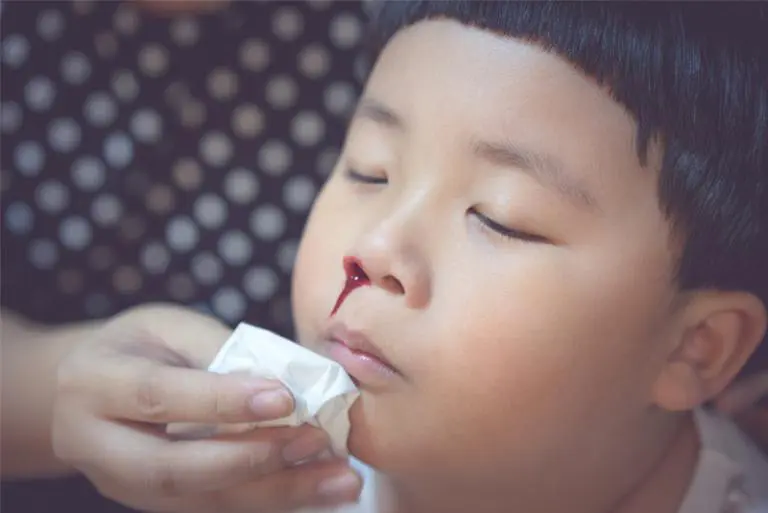Nosebleeds in Children: Everything You Need to Know
Nosebleeds are common in young children. While they can be quite alarming, there is usually no reason for you to panic. Most of the time, they are not due to a serious condition. Your child’s nasal lining is still quite delicate as they are still growing, therefore they tend to be more prone to nosebleeds.

What Causes Nosebleeds in Children and Babies?
Here are some common causes of nosebleeds:
- Irritation in the surface of the nasal lining which can be caused by picking or rubbing the nose.
- Associated with allergic rhinitis (commonly known as “sensitive nose” or “sinus”), where your children sneeze and rub their nose a lot which results in frequent nosebleeds. Treatment of the allergic rhinitis with anti-histamines, intranasal corticosteroid sprays and avoiding dust mites at home will help to improve the nasal symptoms and indirectly reduce nosebleeds.
- Nosebleeds can also be caused by trauma if your child falls and hit his/her nose.
- Some rare causes of nosebleeds include nasal infections, blood disorders or abnormal growths within the nose (such as tumours).
How to Stop Nose Bleeds in Children?
Most nosebleeds can be treated easily at home. Here is what you can do to treat your child’s nosebleeds.
- Sit your child up and get him/her to lean forward to prevent them from swallowing blood.
- Pinch the tip and the soft part of his/her nose.
- Do NOT insert tissues, gauze into his/her nose.
- If the bleeding persists for more than 15 minutes, you should visit a doctor.
For the next few days: - Avoid further irritation to the nose where possible.
- Instruct your child to blow his/her nose gently if needed.
When Should You See A Doctor For Your Child’s Nosebleed?
Most nosebleeds are not a huge cause for concern but if you observe any of the following signs and symptoms, you should see a doctor.
- Your child’s nosebleeds become more frequent and difficult to stop.
- There is bleeding elsewhere, e.g. in stools, urine and tears.
- Your child bruises easily or bleeds from wounds that are difficult to stop.
- There are rashes or bruises on your child’s skin and he/she appears pale, tired and ill.
- You are unsure of what to do or are concerned that the nosebleed might be due to a serious condition.

